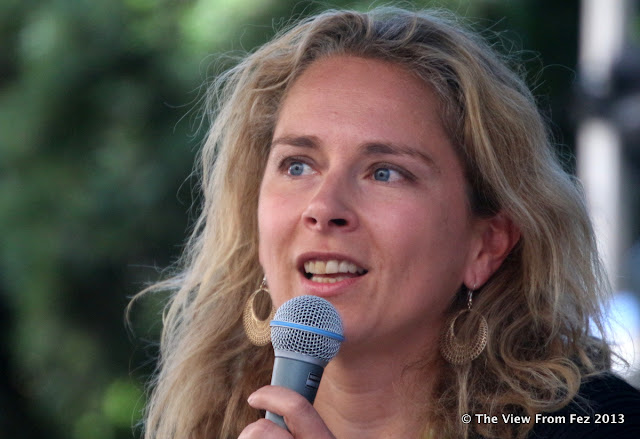The theme of the fourth and closing session of the Fes Forum 2013 was Fes - seeking meaning and inspiration in the legacies of Andalusia: linking development to its cultural heritage and its present
The session began with a reflective few minutes of Andalusian music. Under the spreading branches of the barbary oak tree, in the beautiful Islamic garden of Musee Batha, the soothing sounds from the Al Firdaus Ensemble evoked the mythical medieval golden age of Andalusia.
In a land called Al-Andalus, when a Muslim caliphate ruled parts of Spain, Portugal, Andorra and France, from 711 to 1492, was considered a time when Muslims, Christians and Jews lived in relative harmony. There was a flourishing of the sciences, arts, philosophy and culture. The theme of this year's Fes Festival, Andalusia, draws parallels with contemporary Fes and looks for new ways of encouraging tolerance and pluralism.
"Here in Fez we have culture and music. We are in the spirit of Andalusia," said socio-linguist, Professor Salamatou Sow, from Nigeria.
The first speaker, Ali Benmakhlouf, spoke of the echoes of Andalusia that can be found in today's Fez, from street and family names, to the crafts of artisans such as embroiderers. "It's the transmission of a memory," he said.
Doctor of Persian Literature, Leili Anvar, from France and Iran, said, "We have a strong desire to re-visit the golden period of Andalusia, knowing that it's a myth. However, it existed, but mostly in poetry...Poetry is truly the heart of a culture. Without poetry, we cannot find ourselves."
However, other speakers such as Princeton University Professor Michael Barry reminded us that there is a danger of indulging in nostalgia. "15th century Andalusia was a laboratory of authoritarianism," he said. "We must not forget that there was racism, and there was slavery."
Director of the Institute of Islamic Culture in France, Veronique Rieffel, said it was important not to romanticise the past at the expense of the present, and that contemporary Islamic culture was equally important. "I have observed that there is a denial, (the West) is ill at ease with Muslim identity," she said. "We need to have not just a nostalgic vision of the past, but to maintain an ongoing dialogue."
Story and photos Suzanna Clarke
See Fes Forum Session One, including Katherine Marshall's summary HERE.
See Fes Forum Session Two, including Katherine Marshall's summary HERE.
See Fes Forum Session Three, including Katherine Marshall's summary HERE.
SHARE THIS!








No comments:
Post a Comment